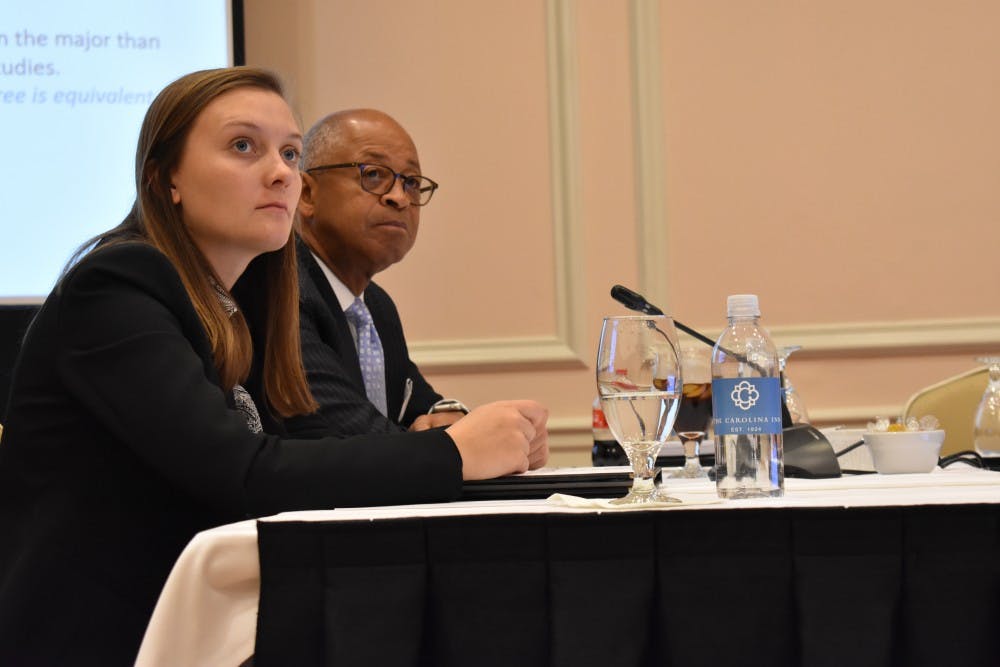One UNC trustee helping inform the decision on Silent Sam, William Keyes, worked with the South African government in the 1980s during apartheid, according to an article published by WUNC.
On Monday, the Board of Trustees and Chancellor Carol Folt plan to release proposals concerning the fate of Confederate monument Silent Sam. The meeting will take place at 8 a.m. in the Chancellor’s Ballroom of The Carolina Inn.
Keyes, who has been a BOT member since 2015, declined to be interviewed before Monday’s meeting but told The Daily Tar Heel his work in South Africa is irrelevant to the important issues the UNC Board of Trustees are facing.
“Work that I did 30 years ago has absolutely no impact on what we’re doing,” Keyes said. “More discussion about that, I think, really is a distraction from the real discussion about Silent Sam, how Confederate statues, about the way that people of color perceive, the way the Black people perceive the statues — that is a huge discussion.”
Keyes worked as a consultant for the South African Embassy, earning $400,000 yearly, according to WUNC. He was the second-most highly paid lobbyist at one point.
During his tenure with the South African government, Keyes worked on improving South Africa’s image among African Americans and conservative groups, Politico reported in 2013. In one of his roles, he worked with reporters and Louis Nel, South Africa's former deputy minister of foreign affairs, according to a 1985 article from The Washington Post. In addition, Keyes had arranged for African-American businessmen and reporters to travel to South Africa.
Keyes also criticized anti-apartheid parties of being affiliated with communist parties in South Africa and the Soviet Union, the Washington Post reported.
According to Politico, in a CNN interview with Bernard Shaw, Keyes publicly opposed the African National Congress, which had later elected Nelson Mandela as the South African president, saying: “It's important that we recognize in the U.S. the reality of the African National Congress as a terrorist outlaw organization which has perpetrated violence primarily against innocent black people.”
According to WUNC, Keyes said his contract ended before Nelson Mandela was released from prison in 1990.



